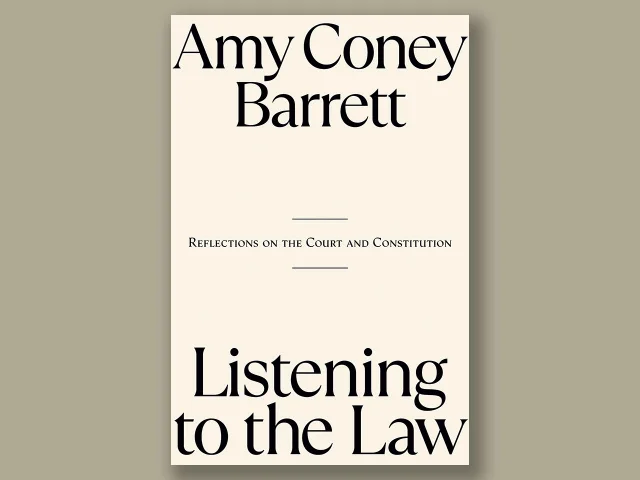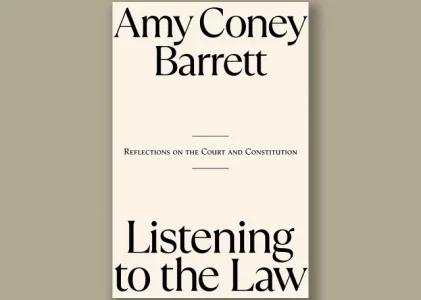
How does one successfully transition from a respected law professor to one of the most intensely scrutinized public figures in America? What does it take to sustain the conviction of an originalist judicial philosophy while serving on a Supreme Court embroiled in constant political warfare? Supreme Court Justice Amy Coney Barrett tackles these questions—and many others she frequently receives—in her book, a hybrid of memoir and civics primer designed to pull back the curtain on the judicial process. Barrett aims to demystify the highest court, blending personal anecdotes—like the difficult family decision to “burn the boats” and accept the nomination—with clear explanations of the Court’s day-to-day operations, from case selection to her own deliberation process.
The heart of Listening to the Law lies in Barrett’s steadfast defense of her judicial approach: originalismcombined with a call for judicial humility. As a former clerk to Justice Antonin Scalia, she presents her method as rigorous textual interpretation, emphasizing that a judge’s role is to interpret the law and Constitution as written, not to inject personal policy preferences or adapt the law to contemporary political convenience. She uses accessible language to unpack complex constitutional concepts, walking readers through landmark cases to demonstrate this framework in action. It is through this lens that she explains her rationale for some of the Court’s most controversial rulings, asserting, for instance, that abortion access was never a “deeply rooted” constitutional right, directly addressing her vote to overturn Roe v. Wade.
The book’s reception, however, has proven to be as polarized as the political climate surrounding the Court itself. For readers who share her commitment to originalism and a non-political judiciary, the book is a sharp, well-structured guide—an essential defense of the rule of law penned by an author who believes Americans deserve to understand the Constitution. They see her effort as a genuine act of transparency designed to combat the sensationalism that often surrounds the nine justices.Conversely, critics view Listening to the Law as a highly controlled narrative—a strategic and often selective presentation intended to mask the Court’s increasing political power. These reviews argue that by framing the Justice’s work as merely objective “umpiring,” Barrett avoids acknowledging the Court’s own role in manipulating doctrines to achieve political ends. Ultimately, the book’s success hinges entirely on the reader’s pre-existing views: they will either find it a courageous, candid effort to maintain judicial integrity or a carefully crafted public relations tool deployed in a desperate attempt to legitimize one of the most politically potent institutions in the country.

